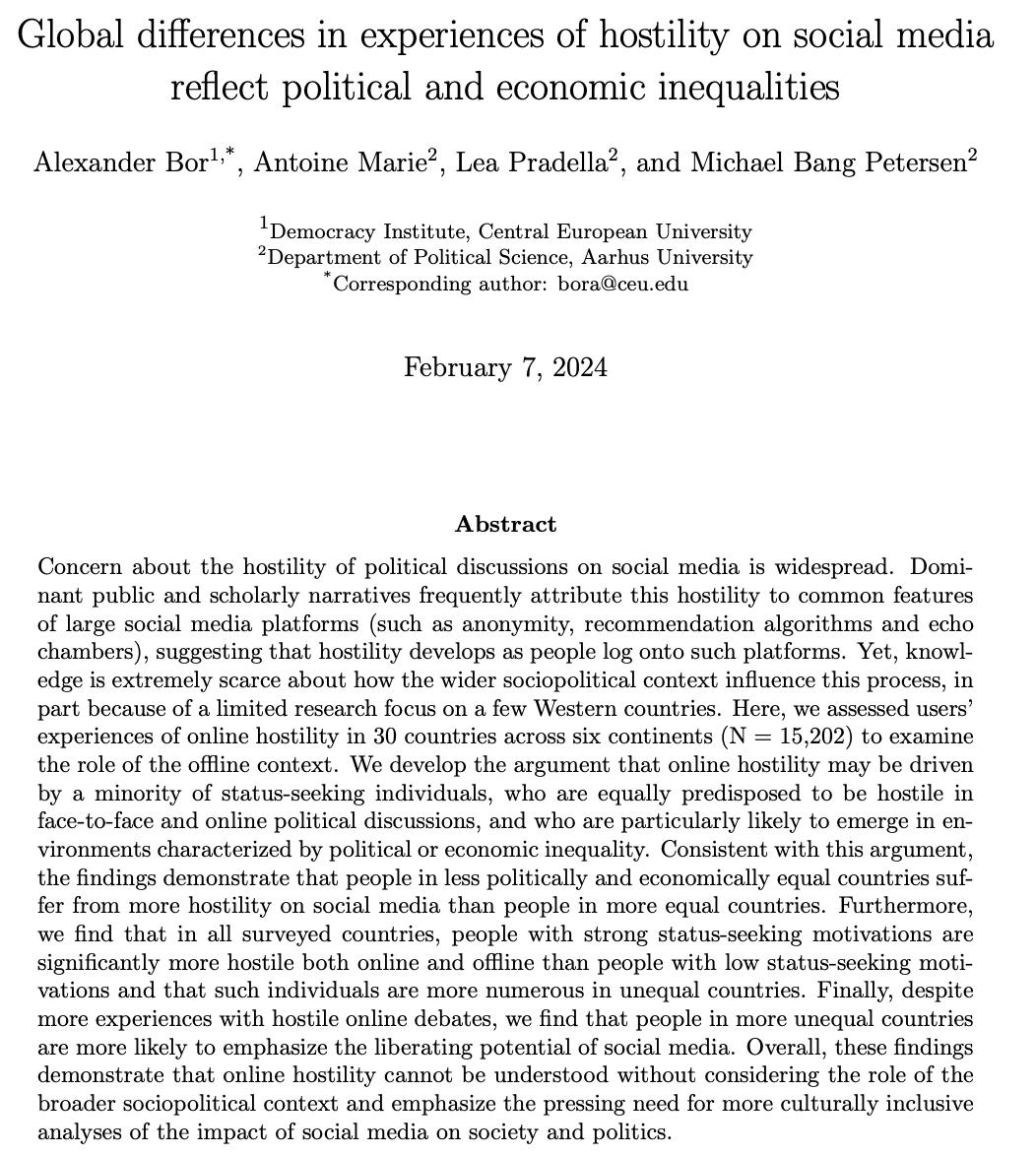In press at @apsrjournal: "Partisan polarization is the primary psychological motivation behind political fake news sharing on Twitter" (psyarxiv.com/v45bk). We find that fake news sharers are not less reflected or literate. They just hate the other party more. 🧵[1/13] 

Method: We received permission from 2,300 survey users collected by YouGov to scrape their Twitter accounts. We matched their tweets against lists of "fake news" and "real news" web domains and categorized them according to their political slant. [2/13]
How much is shared? Consistent with prior work, fake news seems a small problem. 3 % of tweets link to a fake news domain & only 1 % of the panelists share 75 % of all fake news. Most fake news stories are pro-Republican. Most real news, in contrast, are pro-Democrats. [3/13] 

Who shares? We examined 3 accounts: (1) Ignorance (e.g., reflection, knowledge and digital literacy), (2) disruption (e.g., trolling) and (3) polarization (e.g., hatred of the other party). Measures are coded such that *positive* coeffs are consistent with the account. [4/13] 

Results: No support for the role of ignorance in these data; some support for disruption; & strong support for polarized sentiments. BUT: (1) The same factors are associated with *real* news sharing. (2) Outparty hatred is better predictor for sharing of pro-Rep. sources. [5/13] 

How to explain the symmetry in fake & real news sharing? For partisans, fake news is simply another (but extreme) source of "useful" info for denigration. Thus, partisanship is a stronger predictor when moving towards these extreme ends of the partisan news spectrum. [6/13] 

Similarly, there is a strong overlap in those sharing links to fake news sources and those sharing linkes to strongly partisan but real news sources. [7/13] 

How to explain the asymmetry between Dems and Reps in fake news sharing? To this end, we analyzed all shared news headlines for sentiment and whether they were about Dems or Reps. We replicated this for all 500,000 news stories published on the websites in the same period. [8/13]
Our analysis suggets that, for Republicans, fake news sources are simply much more *useful* then for Democrats. Dems can find negative news stories about Reps in mainstream media. To find very negative news about Dems, Reps need to go beyond the mainstream. [10/13] 

As discussed, this doesn't necessarily imply that there is strong media bias. It could reflect a "bias in reality". But it does suggest that Dems and Reps are not psychologically different & cares equally about truth (which, however, may not be alot for strong partisans). [11/13]
Overall, this shows that "fake news" is partisan business-as-usual: A search for info to denigrate opponents. While a small problem in itself, "fake news" is thus a canary-in-the-coalmine: Revealing the massively polarized sentiments that currently drives all news sharing [12/13]
The work was tirelessly led by @Osmundsen_M together with @boralexander1, @anjabechmann and twitterless Peter Vahlstrup. The study was by @AUFF2017 and @Carlsbergfondet. Data and code is available @HarvardDV. [13/13]
• • •
Missing some Tweet in this thread? You can try to
force a refresh













